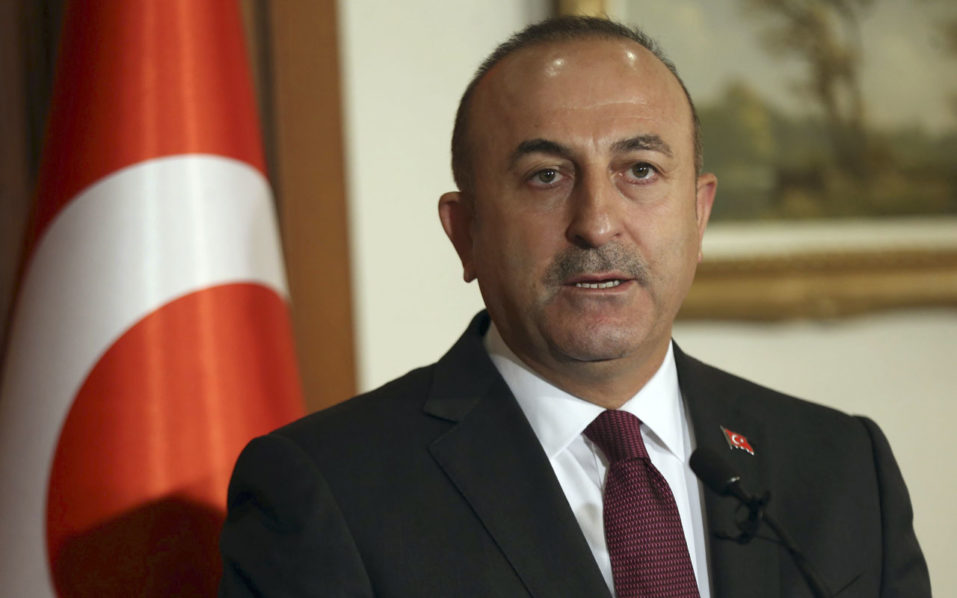London- It was only last month that political circles in Ankara, Moscow and Tehran were abuzz about a new triple alliance of Turkey, Russia and Iran to end the conflict in Syria and reshape the Middle East. A summit, slated for early March, was supposed to give that alliance an unofficial diplomatic imprimatur.
Last week, however the whole scheme began to unravel as the putative members of the triangle appeared to be tempted by other options.
The first salvo came from Moscow when a Russian Defense Ministry spokesman said that his country was not ready to supply the Islamic Republic in Tehran with “offensive weapons” until the U.S. had lifted its sanctions.
Next, Turkish Foreign Minister Mevlut Cavusoglu told the annual Security Conference in Munich, Germany, that Iran was fomenting “sectarian strife” in the Middle East in pursuit of hegemonic ambitions.
Cavusoglu’s statement drew a sharp rebuttal from Bahram Qassemi, the Foreign Ministry spokesman in Tehran, who claimed that Turkey itself was “pursuing futile imperial dreams.” Tehran went further by calling in the Turkish Ambassador, Reza Hakan Takin, and read him the riot’s act.
As the diplomatic ping-pong continued, the Foreign Ministry spokesman in Ankara, Hyseyin Muftuoglu, singled out Iran as a pariah already subject to U.N. censure.
“It is neither possible to accept nor to understand how a country which does not even hesitate to drive people, who took refuge in its territory in the face of regional crises, into a war zone, accuses others of being responsible for the tension and instability in the region,” the Turkish spokesman lashed out.
According to analysts all three members of the putative alliance have decided to wait and see whether they can make separate deals of their own with the new Donald Trump administration in Washington.
The projected triangular summit is off, although on Tuesday Tehran announced that President Rouhani may go to Moscow early in March.
In Munich, the new U.S. Secretary of State, Rex Tillerson, held a “substantive meeting” with his Russian counterpart Sergei Lavrov. Although Lavrov had met Obama’s Secretary of State John Kerry on a number of occasions, the agenda had been limited to Syria. The Tillerson- Lavrov meeting, however, included a broader tour d’horizon probing the possibility of dialogue on many issues.
While Tillerson was sounding out Lavrov, the new Director of the Central Intelligence Agency (CIA), Mike Pompeo, embarked on a “working visit” to Ankara where he held hours of talks with Turkish leaders including President Recep Tayyip Erdogan.
According to Turkish sources, Pompeo told the Turks that the new U.S. administration regarded Turkey as a principal ally in the Middle East with a leading role to play in ending the tragedy in Syria.
Pompeo promised Erdogan what Obama had sharply refused: the creation of “safe havens” complete with a no-fly zone inside Syria close to the Turkish, Jordanian and Iraqi borders. Backed by the U.S., a safe haven inside Syria and controlled by Turkey would give Ankara a solid base from which to contribute to deciding the future of the wear-torn nation.
The area chosen for the safe haven would prevent Syria’s Kurdish minority from achieving territorial contiguity along the Turkish border, something that Ankara regards as a direct threat.
Meanwhile, a third member of the Trump administration, Secretary of Defense General James Mattis, flew to Iraq to signal a change of strategy from lukewarm support for the war against ISIS to full-force support for annihilating the terrorist group.
Mattis, who knows Iraq well, had a simple message: We are not interested in Iraq’s oil but value Iraq’s alliance in security matters. We are not going to abandon you.
The subtext was that the new U.S. administration wants the Iraqi government to distance itself from Tehran, without breaking with it, and draw closer to Turkey as part of a new coalition of regional powers that will, in time, include some of Washington’s Arab allies in a new strategy to destroy ISIS, contain Iran and reshape the Middle East even with some contribution from Russia.
